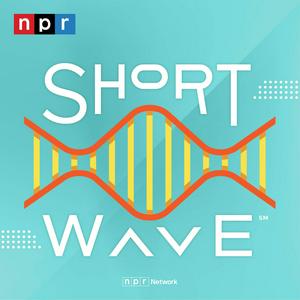The male European fiddler crab attracts his mate by performing a courtship dance. New research published in the Journal of Experimental Biology says that dance isn't just notable for its visuals — it's notable for its vibrations, too.Researchers observed four different stages of the crab's courtship dance, each stage escalating the amount of seismic vibrational output. "It's 'come and find me in my underground house, ladies,'" says Beth Mortimer, a study author and biologist at the University of Oxford. Interested in more seismic vibration communication? Send us an email at
[email protected] to every episode of Short Wave sponsor-free and support our work at NPR by signing up for Short Wave+ at plus.npr.org/shortwave.Learn more about sponsor message choices: podcastchoices.com/adchoicesNPR Privacy Policy

